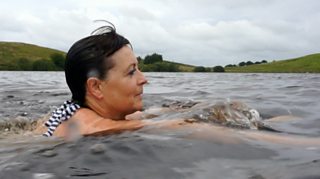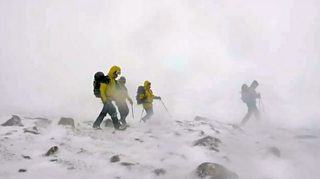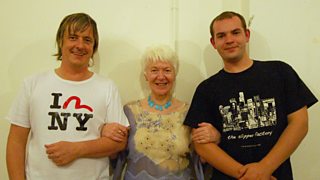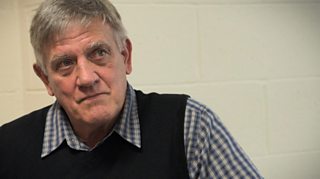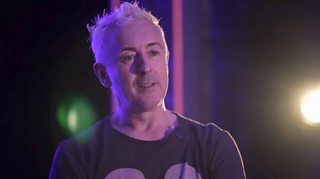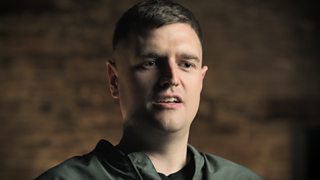Scots good enough to lick
17 April 2017

Brian Cox explores the connections between Scotland and Russia in . One of the stories he tells is that of Scottish socialist leader John Maclean.
Official stamp of approval
. He was arrested and imprisoned multiple times for sedition – encouraging people to rebel.
During his spell in Peterhead jail he went on hunger strike and was force-fed by the prison authorities, which took a severe toll on his health.
After the Russian Revolution he was appointed as the Soviet Consul to Scotland. Although Maclean never actually set foot in the USSR, its government produced a stamp bearing his likeness.
But he’s not the only Scot to have had this honour bestowed upon them by a foreign government.
Mac in the USSR
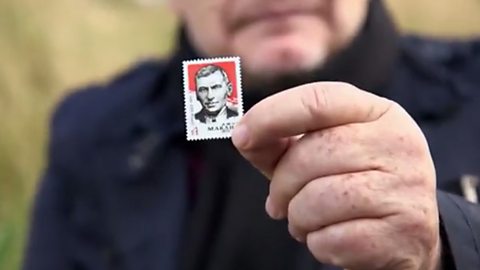
John Maclean on a Soviet stamp
The Scottish socialist leader was honoured in a stamp
Serbian war heroes
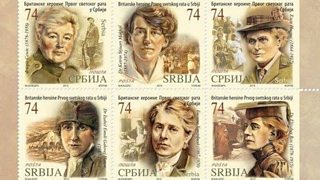
Five Scottish women who provided medical care in Serbia during World War One released in 2015.
Doctors Elsie Inglis, Elizabeth Ross, Katherine MacPhail OBE, Isabel Emslie Galloway Hutton and administrator Evelina Haverfield were recognised along with their English colleague, Captain Flora Sandes.
South American revolutionary
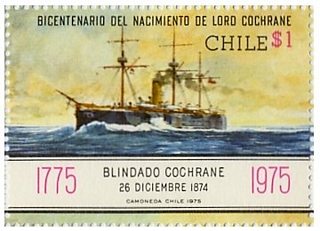
trained in the Royal Navy but fell from grace after being falsely accused of fraud and took his skills abroad.
Cochrane went on to command the Chilean, Brazilian and Greek navies, helping these countries fight for independence.
He eventually received a royal pardon and returned to the Royal Navy.
His exploits are said to have inspired the famous literary character Horatio Hornblower.
Social reformer in New Zealand
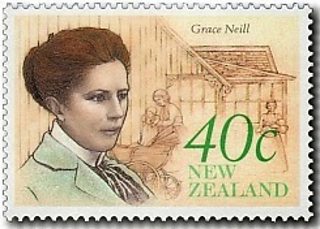
grew up in Argyll in a wealthy family. She ignored the expectations put up women of her class in the Victorian era and sought to develop her own career. She trained as a nurse and moved first to Australia, then New Zealand, where she worked to improve the conditions of the poor, particularly women.
Fantastical writing
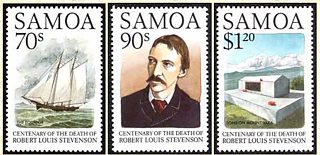
abandoned engineering to pursue a career in writing at 21 and went on to pen classics of Scottish literature, like Kidnapped and The Strange Case of Dr Jekyll and Mr Hyde.
But he suffered from ill health and sought out warmer climates, eventually settling in Samoa.
Stamp for the phone
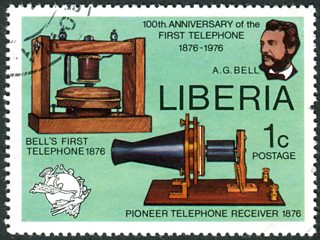
emigrated from Scotland to Canada and then on to America.
He studied the mechanics of human speech and went on to play a major role in developing telephone technology.
Bell has featured on stamps around the world in recognition for his work.
Image credits
- Cover image: Alamy
- WW1 medical staff:
- Thomas Cochrane:
- Elizabeth Grace Neill:
- Robert Louis Stevenson:
- Alexander Graham Bell: Alamy
Latest features from ����ý Scotland
-
![]()
'Wild swimming helps me process the grief of losing my son'
The benefits of cold water therapy.
-
![]()
Winter adventures are appealing, but an expert advises caution
Trips in winter require particular knowledge and skills.
-
![]()
The rescuers: Why volunteers risk their lives in mountain emergencies
Landward meets members of the Cairngorm Mountain Rescue Team.
-
![]()
‘Look for the light’ – practical tips to help you through another winter with SAD
Useful advice and tips to combat low moods at this time of year.
-
![]()
How you could be a binge drinker without even knowing
Binge drinking is classed as fewer units than many people may realise.
-
![]()
How chocolate biscuits and drama classes helped one man leave prison behind
The healing power of creativity.
-
![]()
'When people believe in you, it’s life-changing'
Author Graeme Armstrong revisits the man who helped turn his life around.
-
![]()
The 'breath-taking' display of US birds swept on to British soil
Recent storms have brought rare birds to our shores.
-
![]()
Six things we learned about Alan Cumming on Take the Floor (Spoiler: includes accordions)
The actor spoke to Take the Floor's Gary Innes.
-
![]()
How street gangs trap young men in a dangerous cycle of violence
The almost inescapable pull of life in a gang.
-
![]()
Why stylist Gok Wan believes there's no such thing as bad fashion
The fashion expert says we should stop following rules and do what feels right.
-
![]()
Is sending a CV still the right way to apply for a job?
They've been central to job applications for years, but are they worth it?
